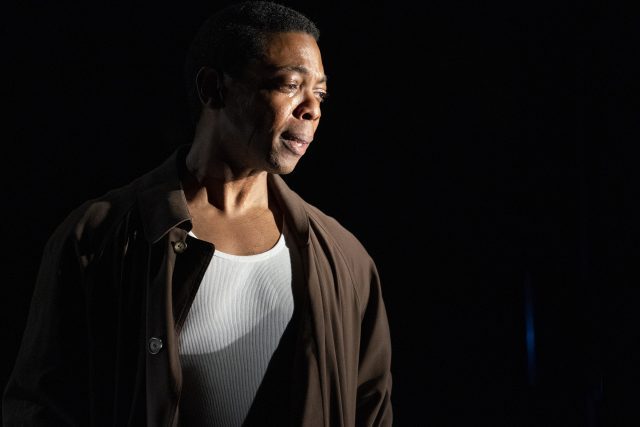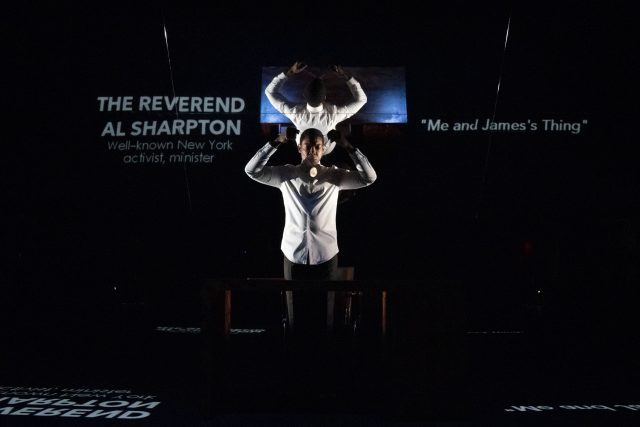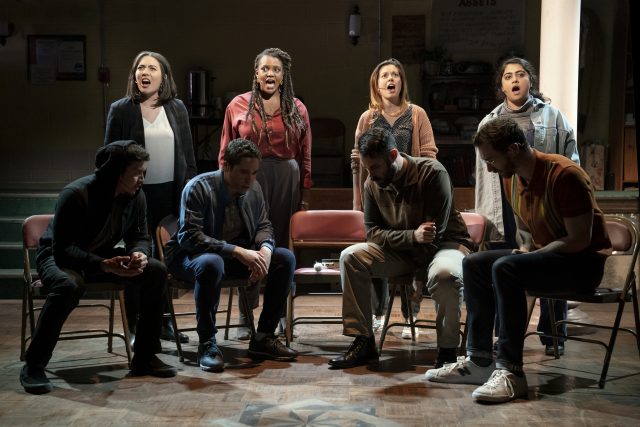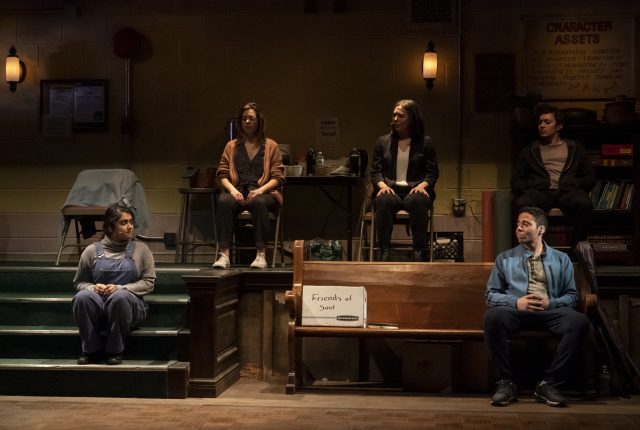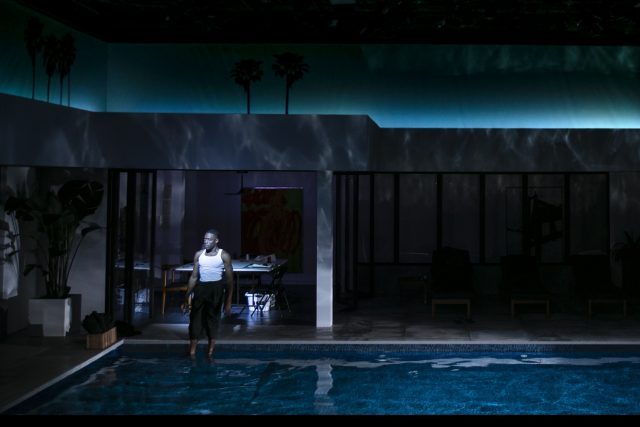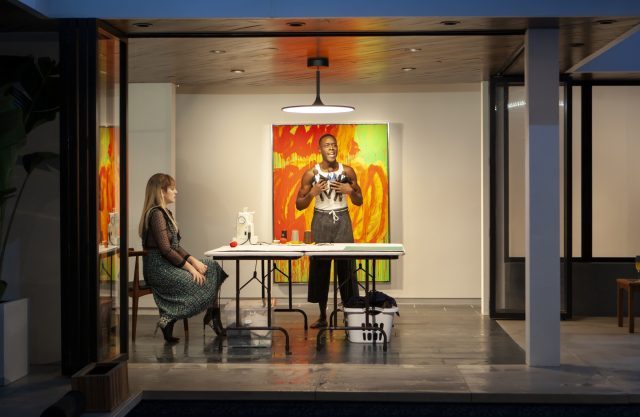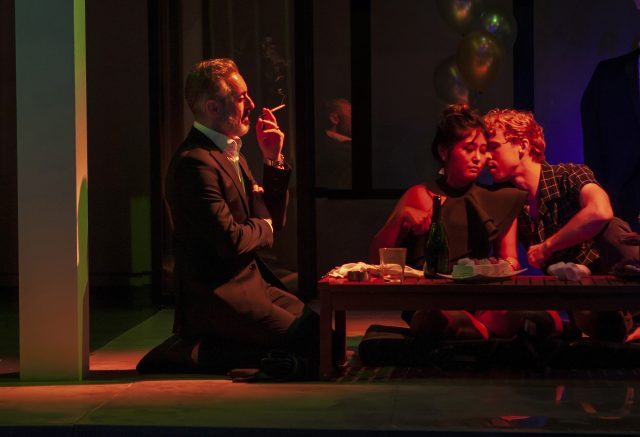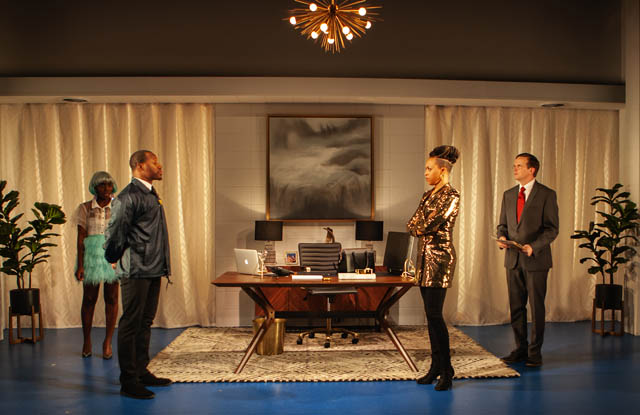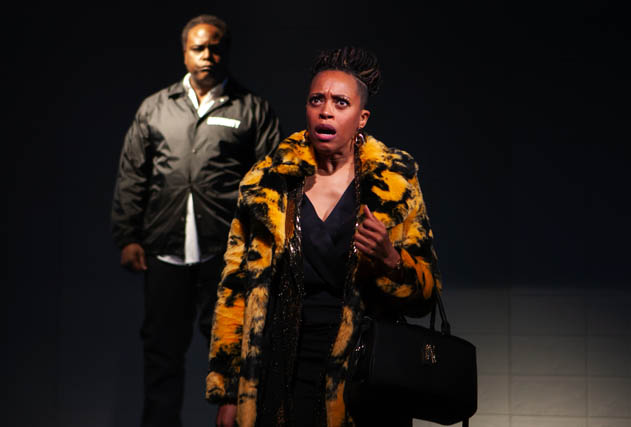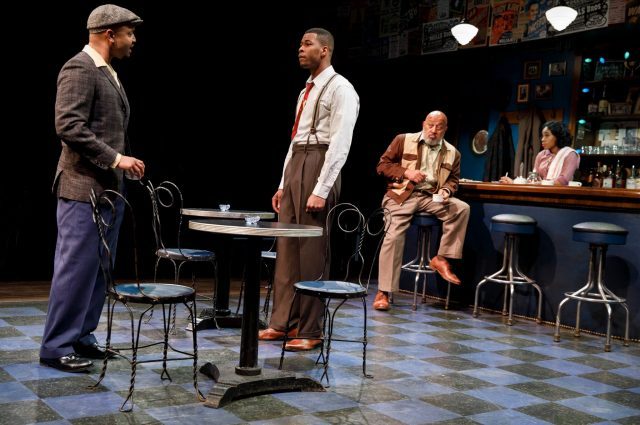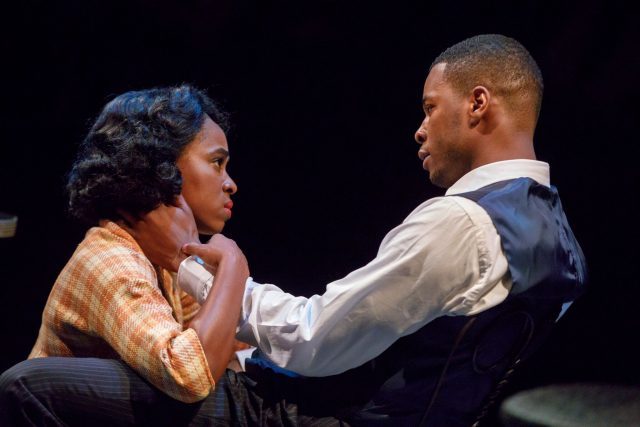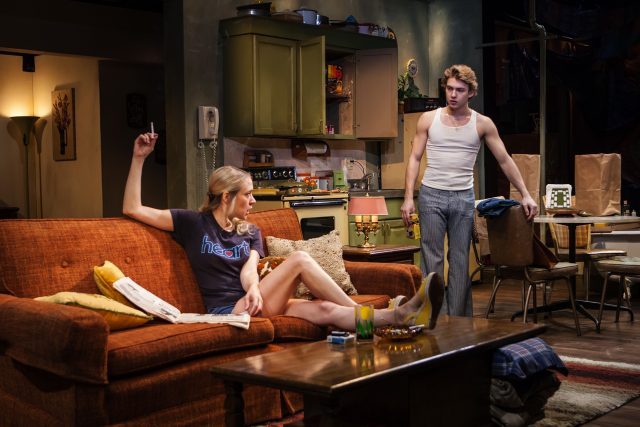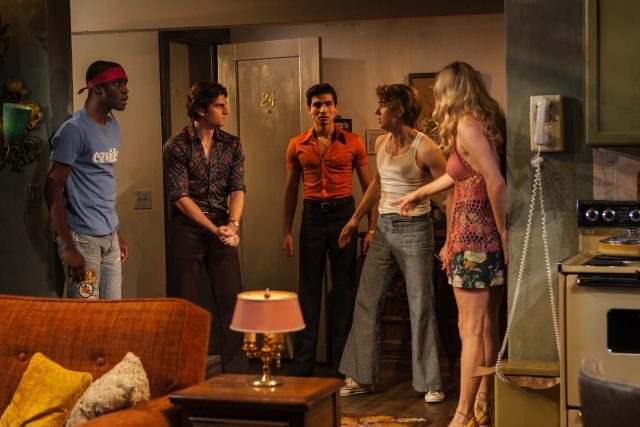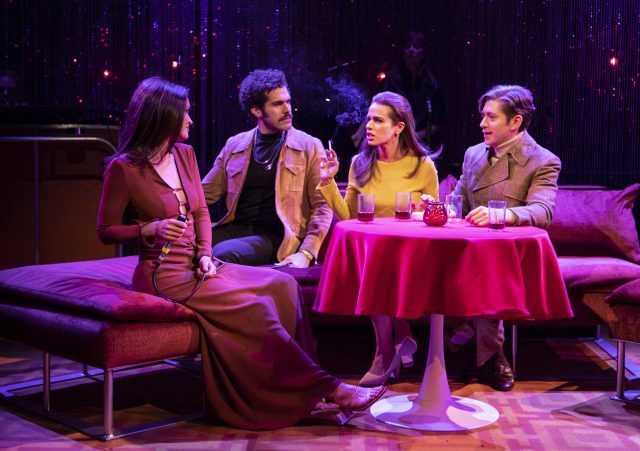
Carol (Jennifer Damiano) and Bob (Joél Pérez) and Alice (Ana Nogueira) and Ted (Michael Zegen) are seeking some new sexual adventures in Bob & Carol & Ted & Alice (photo by Monique Carboni)
The New Group at the Pershing Square Signature Center
The Romulus Linney Courtyard Theatre
480 West 42nd St. between between Ninth & Tenth Aves.
Tuesday – Sunday through March 22, $48-$133
thenewgroup.org
Paul Mazursky’s 1969 film Bob & Carol & Ted & Alice captured the zeitgeist of a nation high on the summer of love, glorying in the sexual revolution. Nominated for four Oscars, the film starred Robert Culp and Natalie Wood as Bob and Carol Sanders, an adventurous LA couple, while Elliott Gould and Dyan Cannon are their best friends, Ted and Alice Henderson, who are significantly more traditional. The New Group has now turned the script, written by Mazursky and Larry Tucker, into a fun, lighthearted play with music that opened tonight at the Pershing Square Signature Center for an extended run through March 22. (Mazursky’s daughter Jill served as a consultant on the show.)
The hundred-minute show opens with Bob (Joél Pérez) and Carol (Jennifer Damiano) on their way to a consciousness-raising weekend. Derek McLane’s set is arranged like an encounter group for the audience, which sits on three sides of a small stage that boasts a couch, several mod chairs, a pair of microphone stands and cushions, a beaded curtain at the back, and the band, consisting of music director and keyboardist Jason Hart, guitarist and bassist Simon Kafka, Noelle Rueschman on reeds, bassist and drummer Jamie Mohamdein, and the bandleader, wonderfully portrayed by iconic singer-songwriter Suzanne Vega, who took over after composer Duncan Sheik, who wrote the lyrics with Amanda Green, couldn’t take on the role in addition to his other responsibilities. Standing in the back, Vega also serves as emcee and narrator, talking to the characters and the audience as well as singing. Early on she says to Bob and Carol (and the audience): “Welcome to the Institute at Big Sur, home of the Human Potential Movement. . . . Don’t think. Feel. . . . Lose your mind. Come to your senses.”
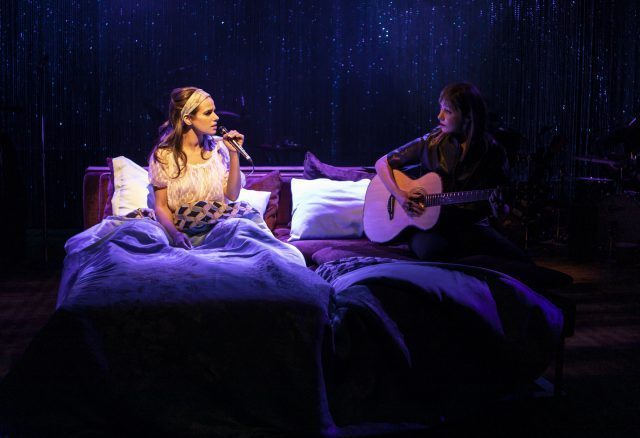
Alice (Ana Nogueira) and the bandleader (Suzanne Vega) share an intimate moment in New Group world premiere at the Signature (photo by Monique Carboni)
Bob is primarily there to make a documentary about the institute, but he is ultimately coaxed into participating in a marathon group therapy encounter session. Bob and Carol closely examine their marriage in ways they never did before. “I always accuse you of hiding your feelings, but I hide my feelings, Carol,” Bob admits. Carol responds, “I do hide my feelings, Bob. You’re not the only one hiding your feelings. I hide my feelings all the time. I came here because I felt like it. I wanted to come for me. But I couldn’t tell you. I’m — I’m sometimes afraid of you.” A weepy Bob replies, “Afraid of me? I love you. I love you so much, baby.” When Bob confesses to having an affair, they take their relationship to another, unexpected level. The now swinging couple share their new outlook on love and life with Ted (Michael Zegen) and Alice (Ana Nogueira), who are not so keen on all this openness. Bob and Carol invite Ted and Alice to Vegas for the weekend to see Tony Bennett, but there’s a special surprise in store.
Bob & Carol & Ted & Alice is a sweet-natured period piece, featuring not only groovy dialogue but classic late-1960s-era costumes by Jeff Mahshie, highlighted by Ted’s turtlenecks and the women’s mini dresses. Pérez (Fun Home, Sweet Charity) plays drums and channels Will Ferrell (and a little Elliott Gould), Tony nominee Damiano (Spring Awakening, Next to Normal) ups the sexy quotient, and Zegen (The Marvelous Mrs. Maisel, A View from the Bridge) and Nogueira (Engagements, Mala Hierba) are right-on as the more buttoned-up couple who just might break free of their societal constraints at any moment. Jonathan Marc Sherman’s (Clive, Knickerbocker) book is endearingly playful, as is Scott Elliott’s (The True, Mercury Fur) direction, which involves several willing audience members. When the characters break into song, Kelly Devine’s musical staging can feel out of place, especially when compared to Vega, whose songs have a natural, effervescent flow, and she also reveals some fine acting chops. (Vega previously starred in her own one-woman show, Carson McCullers Talks About Love, playing the title character.) The movie was revolutionary for its time, but this New Group world premiere does not have such lofty ambitions. Instead, it’s a frisky and flirtatious look at a bygone era, a kind of last gasp right before America would lose its innocence.
